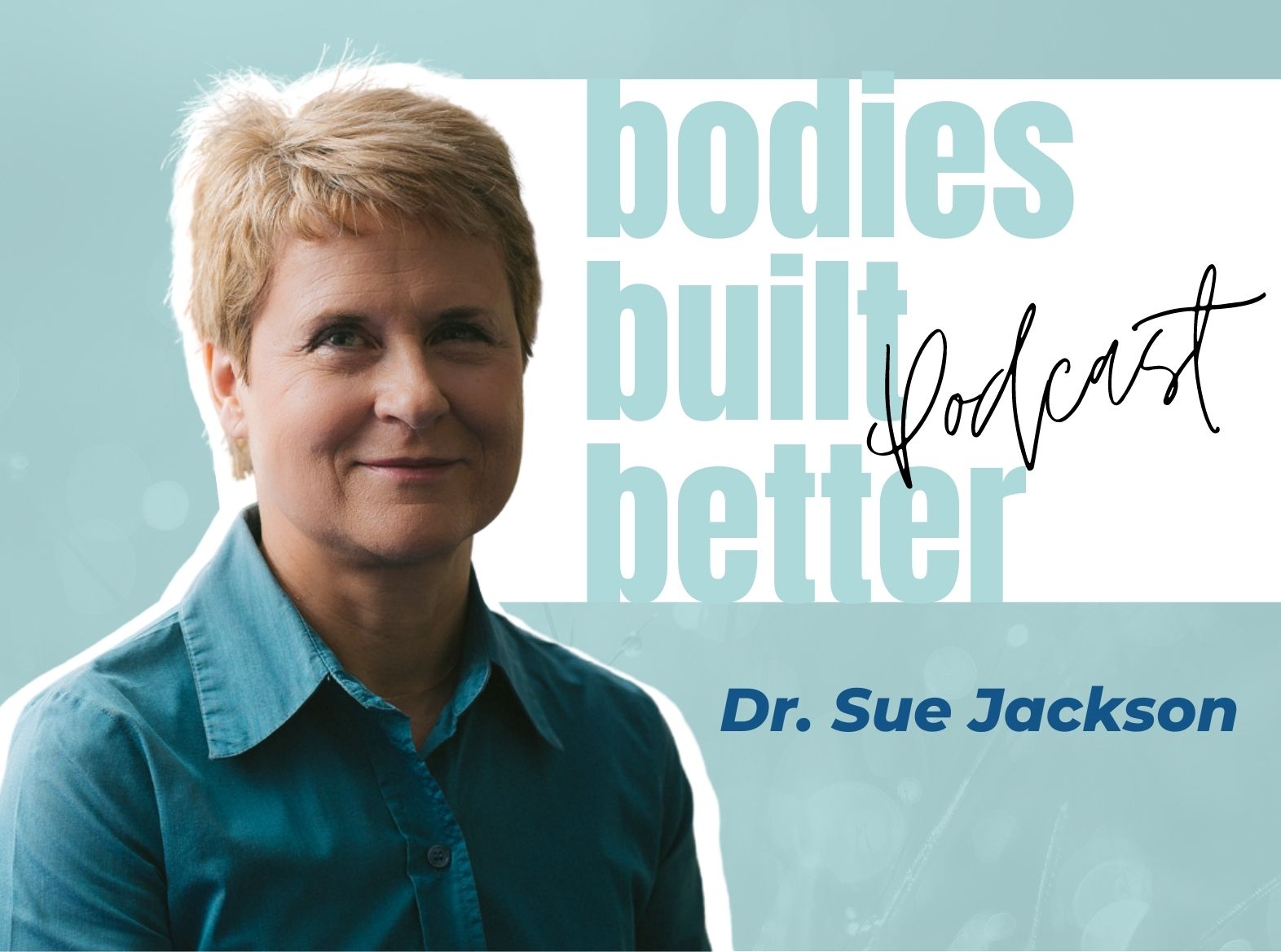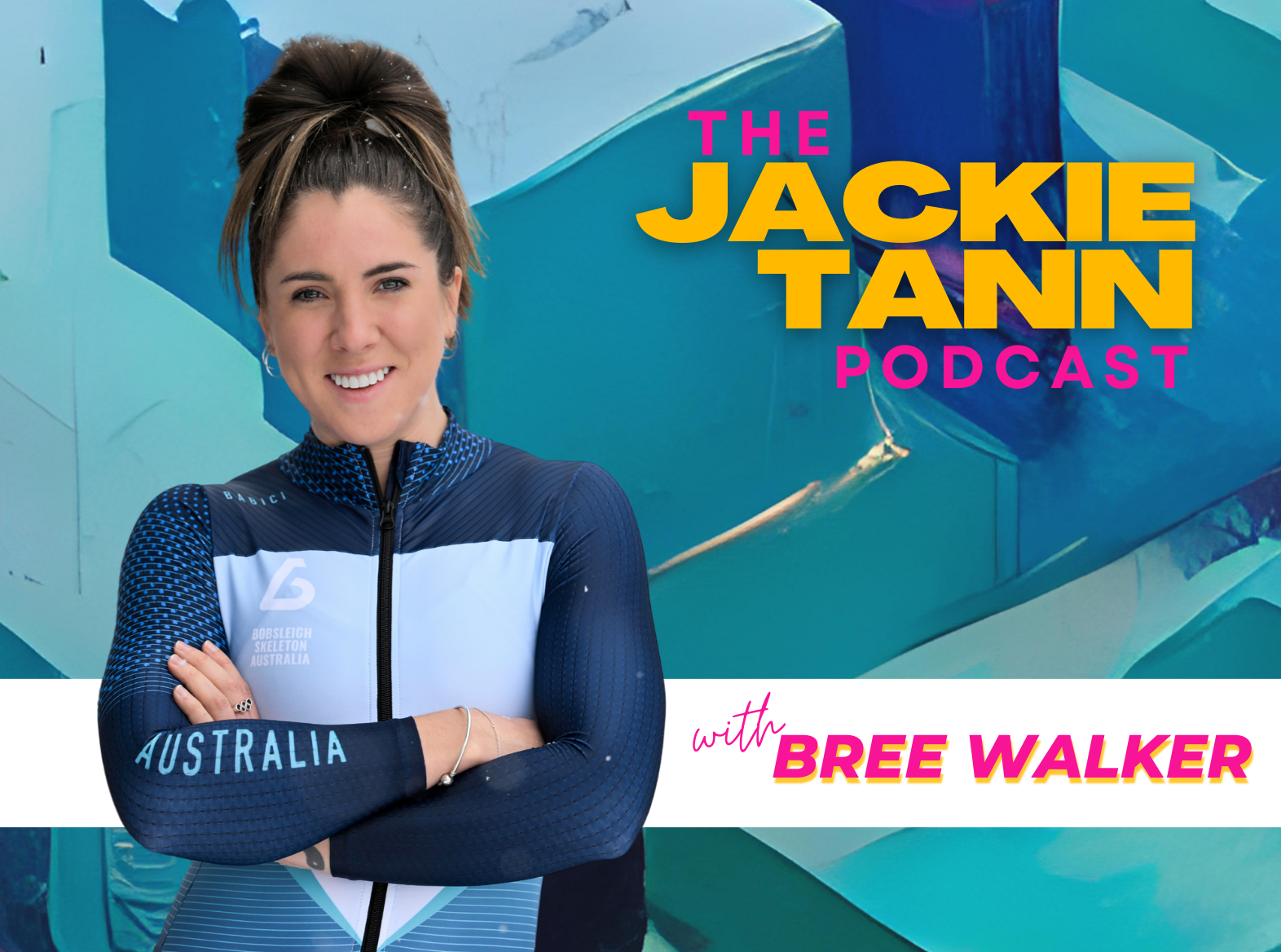Jackie 00:11
Hey, hey, this is Jackie Tann, and welcome to the body’s built better podcast. On the show, we chat with experts, athletes, coaches and authors to educate and inspire you. We explore the body’s incredible ability to heal, adapt, and evolve so you could crush limitations, reconnect your body and mind and discover your extraordinary potential.
Jackie 00:47
Today on the show, I chat with Dr. Sue Jackson, a psychologist and expert in flow. She co-authored the book Flow in Sports: The Keys to Optimal Experiences and Performances with flow pioneer, Mihaly Csikszentmihalyi. I feel like anyone involved in sport needs to read this book. The other thing is, flow is not just limited to people playing in sport, you can experience flow in any type of activity. So if you can experience a sense of joy and engagement and focus and well flow, then why not practice getting into flow? Here’s a quote that I loved from the book.
Jackie 01:33
Once the keys to flow are understood, it becomes possible to transform the entirety of life from a stressful and chaotic chase into something resembling an enjoyable dance. I love that so much. And if that hasn’t convinced you to learn about flow and how to get into flow, then maybe this one will. Flow lifts experience from the ordinary to the optimal. And it is in those moments that we truly feel alive and in tune with what we are doing. And on that note, let’s get into flow with Dr. Sue Jackson. Sue, thank you so much for chatting with me today. I’m very excited to talk about flow. And if I’m honest, it’s actually a state or term that I only came across this year. And because of my love for sport, I came across your book Flow in Sports: The Keys to Optimal Experiences and Performances, which you co wrote with Mihaly Csikszentmihalyi. I hope I said that right.
Dr. Sue 02:45
Well done, most people don’t get it right, first time.
Jackie 02:49
And I love the book. And I really I honestly think anyone who’s involved in sports and you know, wants to improve their performance and potential, I think it’s one that’s to be read. So I’m super excited. So thank you for joining me. And to kick this off. If you could give us some background on you and what led you to your work in flow?
Dr. Sue 03:12
Yeah, thanks, Jackie. It’s a pleasure to be on your podcast. And I hope that listeners will enjoy hearing about flow and that it will motivate them as it motivated you when you learned about it, to explore it more in their own lives. And my book Flow in Sports was obviously directed at athletes and coaches. And so for those listeners, flow is something that sport facilitates in many ways, although not always. And flow is also something that’s not just reserved for sports, so it can be experienced in any setting. It’s got relevance to all of us. And what led me to study flow, I did a combined psychology human women degree and I had a love of sport and was involved in teaching physical education and coaching sport to begin with, in Sydney where I’m from, and then I decided to take my interest in the mental side of sport into post grad degrees in sports psychology. And at the time, North America was and probably still remains a leading source of academic programs to train in. So I went across to the States. And I guess it was from doing that. And I was at the University of Illinois for my master’s degree.… [listen to more on the podcast]
Jackie 08:10
Yeah, that would have been so exciting, huh? So do tell what is flow, what is flow, we won’t keep it a secret.
Dr. Sue 08:21
Flow is a state of optimal focus on a task on the tasks that you’re doing at a particular time. And then beyond that complete concentration. It’s also associated with many other characteristics or qualities of experience. And the highlight is that we tend to really enjoy what we’re doing when we get absorbed in something in that we can let go of our worries and our self concerns. And it’s also associated with performing optimally. So it’s a state of total focus in which we feel at our best and we tend to perform at our best as well. Awesome. Yeah. And the most important, how do you experience flow for her? Yeah, well, that one, right. Yeah, we won’t need to spend much time on that. It’s good. It’s that’s the important question, of course, and it’s, it’s something that I can give some, some insights into. And, and I think that to, to really learn about how to experience flow would take someone committing some time and getting involved with some consulting with someone about their own situation and understanding that and what psychological skills would be most relevant to them, but there are some from research of the model of flow. There are, there are three preconditions, they’re called to flow. And so these things need to be in place for flow to be experienced. And the first is that there’s a balance between challenges and skills. And that if anyone wants to look up the model of flow, that is, that’s a four quadrant and the eight quadrant model of flow. And that’s where the title of the book Beyond Boredom and Anxiety comes from. So if you think of a four quadrant model, so if you just think of a vertical axis and a horizontal axis, you get four squares. And flow is one quadrant, anxiety is another quadrant, boredom is a quadrant and apathy is a quadrant. And so flow exists beyond the experiences of anxiety and boredom. And that is all defined by the relationship of challenges and skills to be in flow, you need to be in a challenging situation that you bring a high skill set to. So you need to have both challenges and skills high. So there’s two axes I talked about: the vertical axis is generally the challenge axis, from low to high. And then the skills axis is the horizontal axis that intersects it again, from low to high. So it’s when you’ve got both skills operating at a high level and a high level of challenge that flow can be experienced. Sometimes, if we look at opposite experiences, such as anxiety, which most of us can relate to, if we can’t yet relate to flow, or we can’t sort of pinpoint times who’ve been in flow, few of us would not be able to relate to times we’ve been anxious….[Listen to more on the podcast]
Jackie 12:32
So can beginners be, get into flow, if they’re, if they’re acquiring a skill?
Dr. Sue 12:42
it’s going to be a more challenging time to get into flow until you’ve got some base level of skill. However, the good thing, particularly in physical activity and sport settings is that we can generate as you would know, like you can generally modify a challenge. So as a PT, if you’re working with a client, that’s a non exerciser, or has an injury, that you modify, what you’re asking them to do, so that the level of challenge meets their skill set. So, it’s about getting that balance.
Listen to the complete interview on the Podcast!
Where to Find Dr Sue Jackson
Website: https://www.bodyandmindflow.com.au/
Facebook: https://www.facebook.com/bodyandmindflow
Instagram: @suejackson_flow
Get in touch: jackie@jackietann.com | @jackietann_rmt












